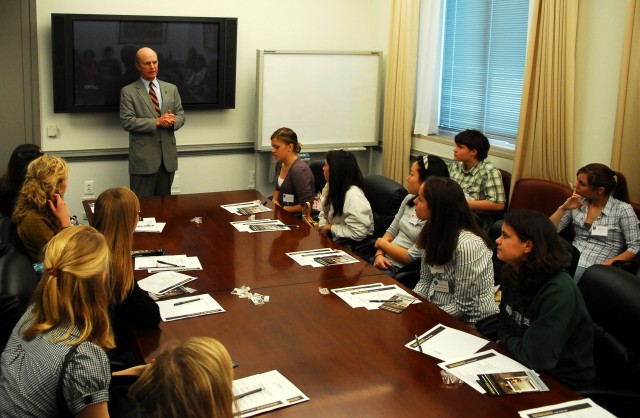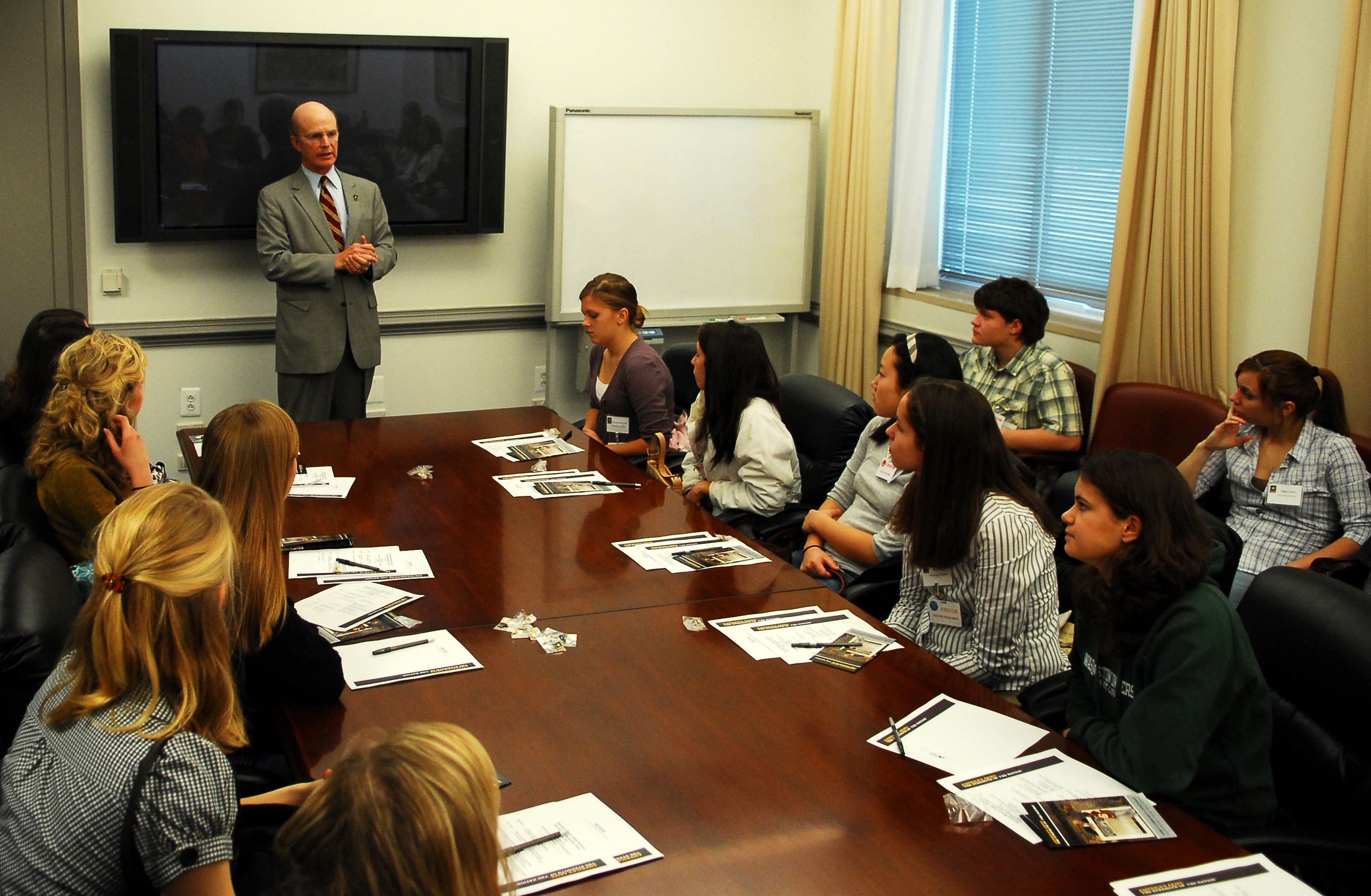WASHINGTON (Army News Service, Dec. 9, 2008) - In a departure from hosting business and community leaders as part of an ongoing executive partnerships office program, Secretary of the Army Pete Geren briefed 27 juniors and seniors from George Mason High School in Falls Church, Va., Dec. 4, on the many roles and responsibilities of the Army.
Geren opened his session sharing his seven year career at the Pentagon with the international relations students and speaking about his specific responsibilities as well as the Army's past and present relationship with Congress. He spoke about the challenges of recruiting and the development of the officer corps and answered questions about how he became the secretary.
"Every year the Army recruits 175,000 men and women to join the active, National Guard and Reserve and to give you a sense of the scale, that's as big as the entire United States Marine Corps. That many people join the Army every year.
"Four thousand new officers are commissioned through ROTC (Reserve Officer Training Corps) programs every year out of colleges around the country and about 1,000 officers are commissioned through West Point every year," he added. He thanked the students for visiting the Pentagon and asked them to consider careers in the military or in civilian service.
The students were also briefed by Lt. Col. Laura Potter who discussed the global reach of the Army and how as an intelligence officer, she's worked with three national-level intelligence agencies in her 19-year career, as well as her duty stations in Iraq, Korea, Uruguay and the Republic of Georgia, where she served as a United Nations observer.
"It was really fascinating to working alongside different nations and learn how their militaries run," Potter said. "Our job was to drive around the area of conflict and keep the conflicted parties apart and make sure they weren't violating any rules set by UN Security Council resolutions. I got to do a lot of neat stuff that I never thought I would do when I joined the Army," she added.
Potter also talked briefly about the brigade combat team structure, the use of unmanned aerial vehicles in Iraq and answered questions about the role of the National Guard and the Reserve and how they were utilized.
Maj. Brian Sullivan followed with his "boots on the ground" overview about serving two tours in Afghanistan, explaining to the students that roughly 90 percent of the world's heroin comes from Afghanistan and that was a major problem coupled with enemies ranging from Al Qaeda, the Taliban and general corruption.
"We can't just destroy the Taliban and Al Qaeda and expect that's going to fix the problem, because at the end of the day the problem in Afghanistan is making sure that you have effective government that can secure the people," he said.
Before capping off their day with a tour of the Pentagon, the students were brief by Col. Greg Martin, chief of the director's initiatives group, G-8 who spoke about the responsibilities of the joint staff and a career in international relations, and Brig. Gen. Jeffrey Phillips, deputy chief of Army Public Affairs, who spoke on defeating global terrorism through the fight for the information highway.
Alexa Schaeffer, a 16-year-old junior, said she gained a new insight into Soldiering: "I think this day was very interesting because I always read the newspaper in our international relations class, and we always read the media's opinions, so it was very interesting to hear straight from Army people their experiences, what's actually going on in Iraq and Afghanistan."
"I was getting a lot of interesting perspectives on the wars and the military in general," said Karla Caraballo-Torres, 18. "It was very interesting to hear how it is in the military and how Soldiers perceive the war and their opinion. I thought it was a pretty good overview and helped give me more of a perspective on what is going on."


Social Sharing